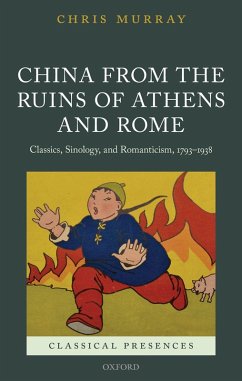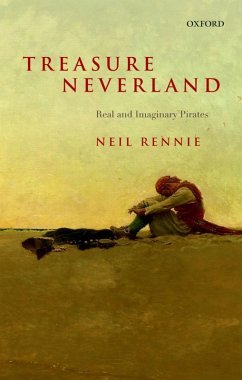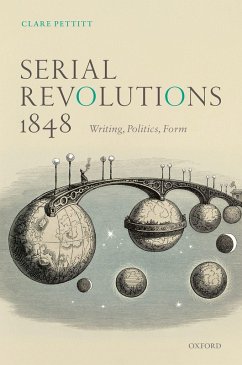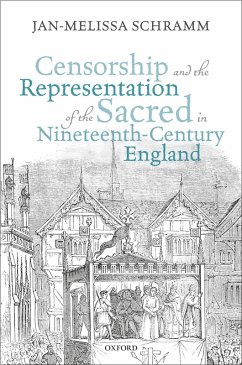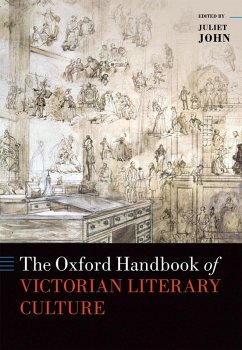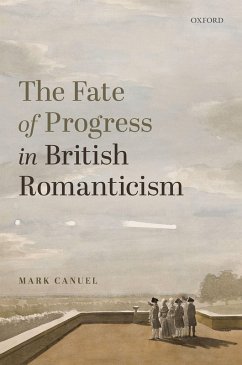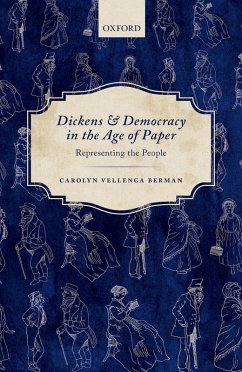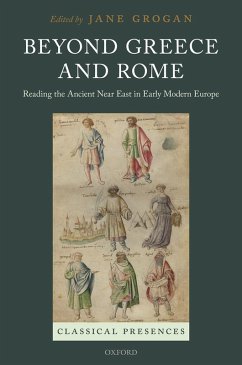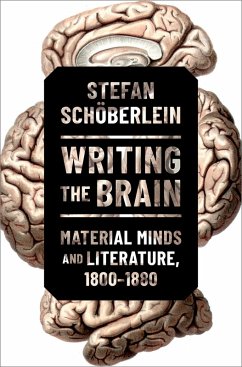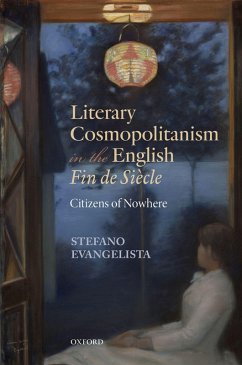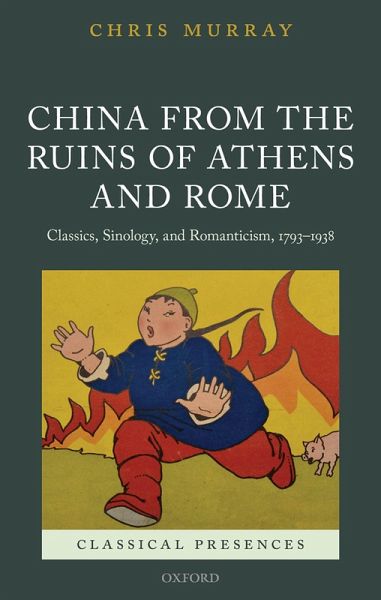
China from the Ruins of Athens and Rome (eBook, ePUB)
Classics, Sinology, and Romanticism, 1793-1938
Versandkostenfrei!
Sofort per Download lieferbar
39,95 €
inkl. MwSt.
Weitere Ausgaben:

PAYBACK Punkte
20 °P sammeln!
Fascinated and often baffled by China, Anglophone writers turned to classics for answers. In poetry, essays, and travel narratives, ancient Greece and Rome lent interpretative paradigms and narrative shape to Britain's information on the Middle Kingdom. While memoirists of the diplomatic missions in 1793 and 1816 used classical ideas to introduce Chinese concepts, Roman history held ominous precedents for Sino-British relations according to Edward Gibbon and Samuel Taylor Coleridge. John Keats illuminated how peculiar such contemporary processes of Orientalist knowledge-formation were. In Brit...
Fascinated and often baffled by China, Anglophone writers turned to classics for answers. In poetry, essays, and travel narratives, ancient Greece and Rome lent interpretative paradigms and narrative shape to Britain's information on the Middle Kingdom. While memoirists of the diplomatic missions in 1793 and 1816 used classical ideas to introduce Chinese concepts, Roman history held ominous precedents for Sino-British relations according to Edward Gibbon and Samuel Taylor Coleridge. John Keats illuminated how peculiar such contemporary processes of Orientalist knowledge-formation were. In Britain, popular opinion on Chinese culture wavered during the nineteenth century, as Charles Lamb and Joanna Baillie demonstrated in ekphrastic responses to chinoiserie. A former reverence for China yielded gradually to hostility, and the classical inheritance informed a national identity-crisis over whether Britain's treatment of China was civilized or barbaric. Amidst this uncertainty, the melancholy conclusion to Virgil's Aeneid became the master-text for discussion of British conduct at the Summer Palace in 1860. Yet if Rome was to be the model for the British Empire, Tennyson, Sara Coleridge, and Thomas de Quincey found closer analogues for the Opium Wars in Greek tragedy and Homeric epic. Meanwhile, Sinology advanced considerably during the Victorian age. Britain broadened its horizons by interrogating the cultural past anew as it turned to Asia; Anglophone readers were cosmopolitans in time as well as space, aggregating knowledge of Periclean Athens, imperial Rome, and many other polities in their encounters with Qing Dynasty China.
Dieser Download kann aus rechtlichen Gründen nur mit Rechnungsadresse in A, B, BG, CY, CZ, D, DK, EW, E, FIN, F, GR, HR, H, IRL, I, LT, L, LR, M, NL, PL, P, R, S, SLO, SK ausgeliefert werden.




